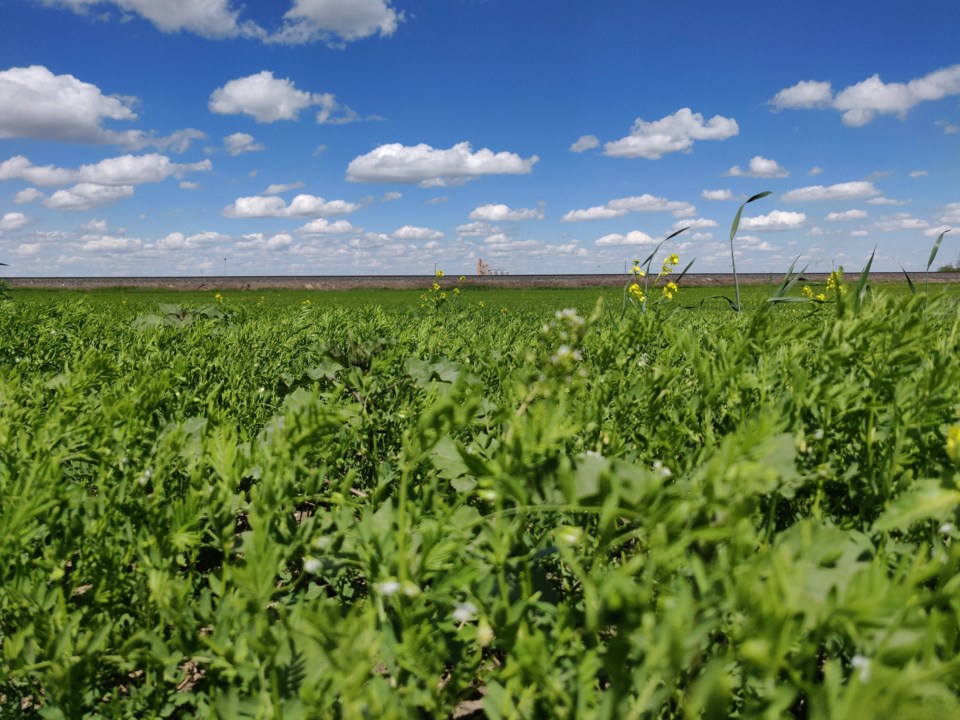A five-year agreement has been reached by the federal, provincial, and territorial (FPT) Ministers of Agriculture for the Sustainable Canadian Agricultural Partnership. This agreement made recently during the Annual Meeting in Saskatoon will invest $500 million in funds, which represents a 25% rise in the cost-shared portion of the partnership.
The Ministers agreed to refine Business Risk Management (BRM) programs to enhance economic sustainability. This would include raising the AgriStability compensation rate from 70% to 80%. They agreed to the $250 million Resilient Agricultural Landscape Program to support goods and services supplied by the agriculture sector.
“The path forward leverages regional strengths and diversity to rise to the climate change challenge, support Canadian producers, capture new markets and meet the expectations of consumers at home and abroad,” Marie-Claude Bibeau, federal Minister of Agriculture and Agri-Food said. “Our discussions…and plans for the future, will build off the great work farmers and processors already do. Our ambitious vision, collaborative spirit, and future additional investments will help the sector go even further.”
With a focus on measuring the results of framework investment, this new agreement will include stronger targets like a 3-5 MT reduction in greenhouse gas emissions, increasing sector competitiveness, revenue, and exports, and a rise in participation of Indigenous Peoples, women, and youth.
"As the provincial-territorial co-chair, we are pleased with the increased funding all parties have committed to today. I believe we have found the proper balance between economic and environmental objectives to ensure our industry remains globally competitive,” said David Marit, Saskatchewan Minister of Agriculture.
“This balance will be vital as Canada’s producers seek to provide the food the world needs. The improvements made to our Business Risk Management suite demonstrate our continued commitment to making programs more timely, equitable, and easier to understand. We look forward to the benefits this partnership will achieve for our industry.”
Appropriate authority will be required by each jurisdiction and will mark a way forward to advance the five priorities agreed to in the Guelph Statement. Those priorities are as follows:
• Tackling climate change and environmental protection.
• Continued and targeted investments in science, research, and innovation.
• Supporting sustainable agriculture and economic growth.
• Building sector capacity and growth.
• Enhancing resiliency to anticipate, mitigate and respond to risks.
These five priorities will enable an innovative and productive internationally competitive sector that can continue to feed Canada and a growing global population.
Over the course of the five-year agreement, it was agreed to put new measures in place to the suite of BRM programs, this will make them more timely, equitable, and easy to comprehend. In addition, this should better protect producers against climate risk. Our Ministers and producers continue to cooperate to make sure they have a vast array of programs they can rely on when they face any situation.
With this new agreement and BRM improvements, Ministers have also had discussions on other priority areas. This includes the country’s opportunity to feed Canadians and the world through global leadership. Some of the things discussed were market access, food supply chain, and trade issues, additionally it will maximize Canada’s contribution to the global food supply. Another thing discussed was the importance of reducing barriers to interprovincial trade and the start of four pilot projects focused on domestic trade in border regions and Ready to Grow plants.
Conversations have been had about the importance of ensuring that efforts to reduce emissions from fertilizer or other agricultural sources do not slow down Canada’s ability to contribute to domestic and global food security, now or in the future. Collaboration between Ministers and producers will continue with the sector’s value chain to help producers’ efforts to mitigate fertilizer-related emissions while maintaining competitiveness.
Advanced discussions around African Swine Fever prevention and preparedness have been taking place. These discussions include lessons learned from the recent Avian Influenza outbreak response. Additionally, Ministers discussed progress made on a Code of Conduct for grocery retailers and suppliers. The industry is encouraged to present a complete code by November 2022.
Another item addressed by Ministers was the importance of bee populations, domestic and native, to Canada’s economy and the environment. The Ministers have agreed to aid each other to make science-based decisions about the import of honeybees. A collaboration has been noted by the Minister, between the Canadian Food Inspection Agency and the cattle sectors to perform a risk analysis of potential changes to the bovine spongiform encephalopathy (BSE) control measures to maintain its negligible status within the World Organization for Animal Health.
Following a press conference on July 22, 2022, The Agricultural Producers Association of Saskatchewan (APAS) is warily optimistic about the progress being made in developing the next agricultural policy agreement.
“It is very important for the Federal and Provincial governments to agree on improvements to agricultural programming,” stated APAS President Ian Boxall. “The future sustainability of our industry depends on strong commitment from both levels of government.” Boxall pointed to the livestock sector as an example. “Our cattle producers are squeezed by rising production costs and stagnant livestock prices, while consumers are paying record retail prices in the store. We recognize today’s news but also stress the need to continue these discussions so that programs can help us address these challenges, otherwise, we risk losing this industry.”
The APAS Vice President, Bill Prybylski, showed optimism regarding the increased funding envelop but noted concerns with indications that producers will have to meet environmental reporting requirements to access Agrilnvest coverage.
“AgriInvest is one of the most widely used business risk management programs in the industry and we had recommended keeping these programs separate from environmental initiatives,” Prybylski noted. “Producers already comply with high standards of environmental protection and land stewardship.”
The next Annual FTP Ministers’ meeting will be held in Fredericton, New Brunswick in July 2023.
For more information about the other things discussed at this year’s Annual FPT Ministers’ meeting visit https://www.canada.ca/en/agriculture-agri-food/news/2022/07/federal-provincial-and-territorial-ministers-of-agriculture-reach-a-new-partnership-agreement-and-inject-new-funds-to-support-the-sector.html




